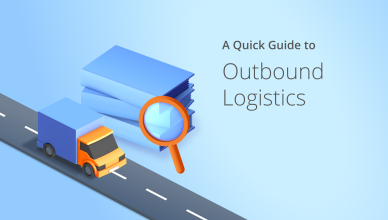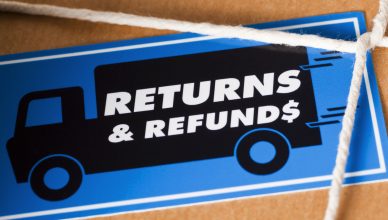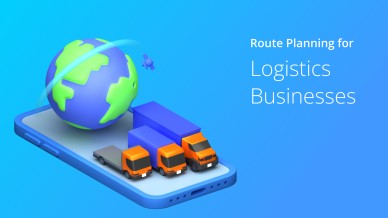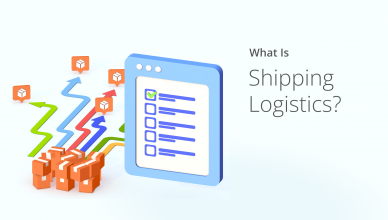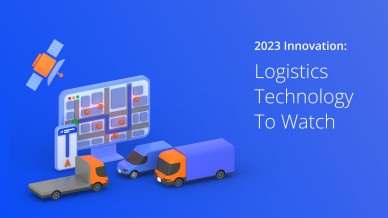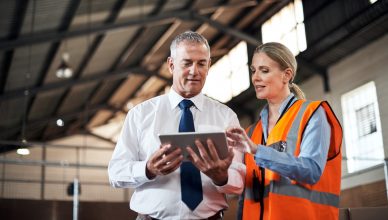Logistics planning is crucial to improve the flow of the entire supply chain operations. It covers transportation, storage facilities, order fulfillment, warehouse insurance, and other aspects.
Concrete logistics planning can help you grow a successful delivery service business.
Here’s everything you need to know about logistics planning and how it can help you run your business.
Table of Contents
What’s Logistics Planning?
Simply put, logistics planning determines the perfect plan to get products from the retail location to the end customers in the most cost-effective way possible.
A logistics planning process might look different for different customers.
Still, it typically covers the entire logistics system, starting from procurement, production, facility locations, warehousing, order fulfillment, inventory management, and raw material handling, all the way to shipping and returns.
A logistics strategy considers all these and ensures that these are optimized most efficiently with the least operational costs. It also takes unexpected delays and challenges into consideration.
Importance Of Logistics Planning In Business Operations
Companies develop logistics strategies to help them execute all business operations most efficiently. This ensures longevity because your logistics services can remain competitive in the long run.
One of the biggest concerns with delivery service businesses is how to meet the demands of your clients, and logistics management can help you consider all your business’s goals and make wise decisions on how to meet them.
Furthermore, it can help you with day-to-day logistics operations.
If you have a solid logistics strategy, you can better meet customer expectations, increasing the likelihood of repeat business.
Lastly, logistics strategies can help you run your business safely and securely. You can create contingency plans if untoward events befall you and your business.
Want To See For Yourself How Route4Me Can Help Make Logistics Planning Efficient?

4 Types of Logistics Management
1. Distribution & Material Movement
Distribution and material movement covers getting the products from one location to another. It supports the overall logistics process so you can improve efficiency, increase asset utilization, and lower supply chain costs.
With efficient logistics planning, not only will you be planning every aspect of getting the products to the end customers and ensuring that you’re increasing fleet capacity utilization, but you will also be ensuring that you have contingency plans in place in case of lost and damaged items.
Delays in shipments, lost/damaged items, and other untoward incidents might not be unavoidable, but having the right logistics plans in place can ease the strain so you don’t take substantial hits.
2. Supply Management & Logistics
When you think of supply chain management in the logistics industry, you have to start with the raw materials, putting them together to create the end product and getting them to the customer.
Logistics planning reduces waste to make the entire supply management more cost-effective.
Having the right plan ensures you know what you have and where you always have it. This can help with unwanted doubling-up, so nothing gets lost and forgotten.
3. Reverse Logistics & Product Return
Considering product returns and reverse logistics is also a must in logistics planning. Customer returns are always unwanted because they’re costly, but knowing how to address them can reduce their negative impacts.
A proper planning strategy will show you what you can reuse/repurpose. For example, you can revamp or refurbish returned items and sell them at a lower price to reduce waste.
4. Production Logistics and Management
Logistics planning can help you stay on top of production management. Knowing exactly what each step entails (and how long it is) can help you save plenty of time, making a more efficient production process. It can also help you save money.
For example, if one production step takes twice as long as the following step, this leaves room for plenty of your workers standing around and doing nothing.
Logistics planning can help you identify something else in the supply chain they can do while they wait around.
The same can be said for the inverse — logistics management can also help you identify ways to speed up the step that takes too long.
Multi-Stop Route Planner App

8 Tips To Make Logistics Planning More Productive
1. Devise A Strong Logistics Plan
A strong yet realistic logistics plan will help you run your business more efficiently.
Set achievable goals and avoid unnecessary complications when creating your modern supply chain plan.
Although eliminating all obstacles is virtually impossible, effective logistics planning can help you overcome failures and provide you with contingency plans to protect you and your business.
2. Make Data-Driven Decisions
Effective logistics planning can help you make accurate and reliable data-driven decisions. Having the numbers to back up your business decisions can also help you stay true to your long-term goals for the supply chain.
With historical data, you can make spur-of-the-moment decisions that might be detrimental to your logistics operations’ future growth. This means you can limit disruptions and missteps in all supply chains.
3. Have A Contingency Plan
Having a foolproof logistics plan is virtually impossible, but it can help you establish contingency plans for unforeseen incidents.
Logistics planning can also help you create logistical backups for vital parts of your company’s operations, like inventory management, invoice, and payment processing. Having the right logistics strategy will help you withstand supply chain disruptions.
4. Automate When Needed
Automating processes where they can be automated can help you run your business more efficiently. Logistics planning can help you identify where this can be done in the supply chain to build a better company reputation.
You can incorporate logistics software to help you automate some processes. New technologies can help your manufacturers, carriers, and merchandisers communicate with one another better without you having to lift a finger.
Furthermore, new technologies like artificial intelligence (AI) can help take the load off your human employees wherever possible. You can also run automated reports to help you forecast future moves to improve your business.
5. Hire An Experienced Manager Or Leader
Having the right logistics manager makes all the difference in how you run your business. Someone specializing in logistics planning can provide valuable insight into things that can be improved. Of course, because they already have the experience, this eliminates much of the trial-and-error process.
6. Learn From Your Mistakes
Logistics plans can help you determine past missteps to know precisely where things went wrong. It leverages learning from your mistakes because this is a reliable way to improve your future processes.
7. Take Time To Review The Plans & Current Data
Just because you have a solid logistics plan doesn’t mean you can no longer improve on it. Take time to review the plans and current data and see if any potential shortcomings can be refined.
You can also seek the help of historical data to help you craft strategies to address unexpected challenges and apply them to your latest logistics plan. This way, you can avoid major problems before they occur.
8. Give Feedback To The Team
Logistics plans can also help you give feedback to your team. Let them know which aspects of the business operations they are doing well on and what can be improved, so everyone involved can stay aligned on where you see your business in the long run.
Don’t forget to seek their input as well — making them feel heard will make them feel more involved and inclined to improve their suggestions.
Frequently Asked Questions (FAQs) about Logistics Planning
What are the six principles of logistics planning?
What are the advantages of planning in logistics?
In Summary
Logistical planning can make or break the way you run your business.
Firstly, strategic logistics planning helps optimize transportation operations. It can help you find the most cost-effective way to get products to the end customers.
Having the right logistics plan can also shorten delivery times, leading to improved customer satisfaction and business growth in the long run.
When you have effective supply chain management, you are better equipped to meet customer demand, which will make them want to work with you again.
Of course, not all plans are foolproof, but logistical planning can help you establish contingency plans in the face of accidents and reduce service delays.
Having the right logistics plans in place can also provide you with veritable numbers so you know exactly what changes you need to make to improve how you run your business.
Lastly, logistics plans can help reduce supply chain costs alongside your carbon footprint to promote sustainability.
Want To See For Yourself How Route4Me Can Help Make Logistics Planning Efficient?









